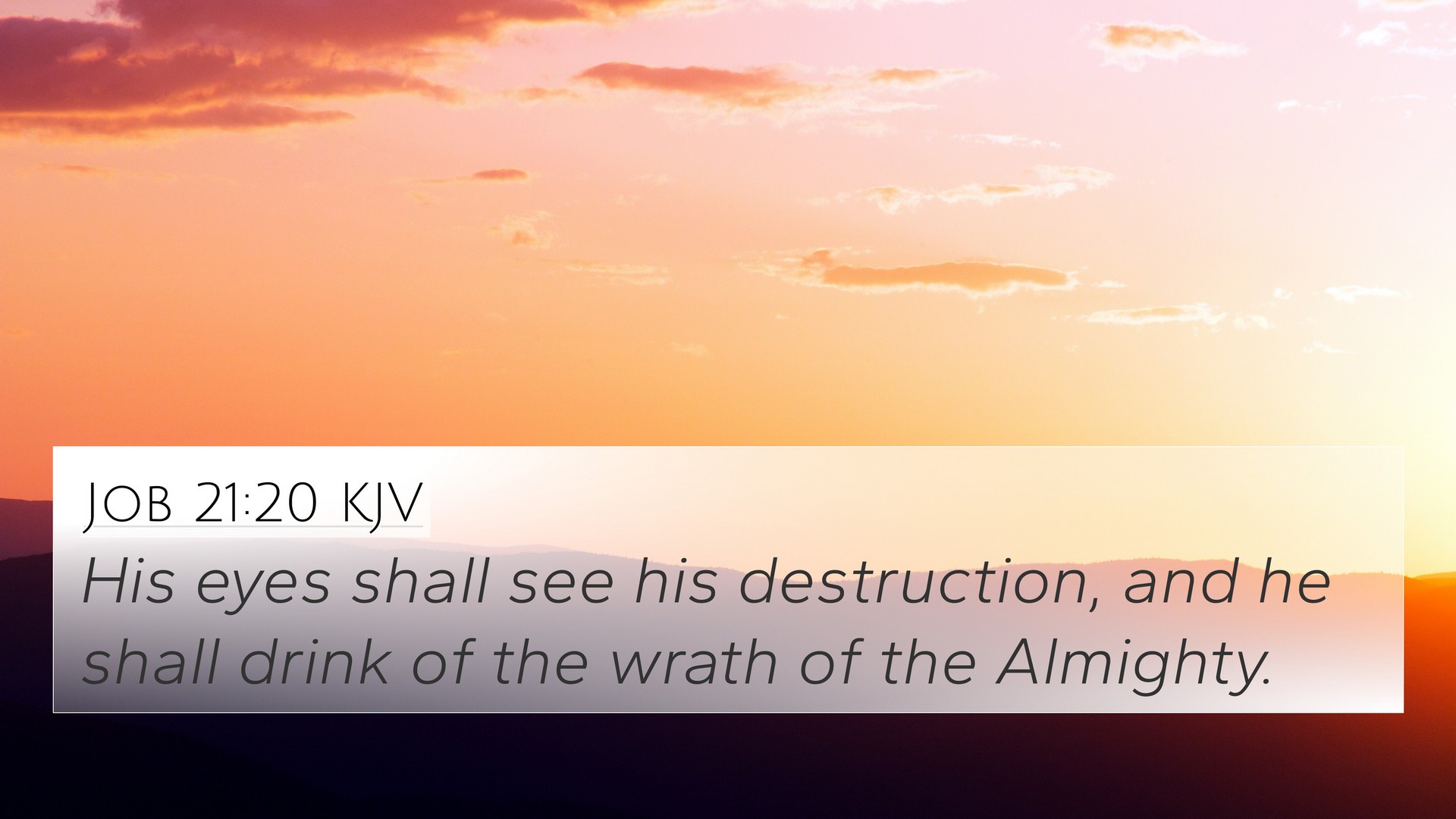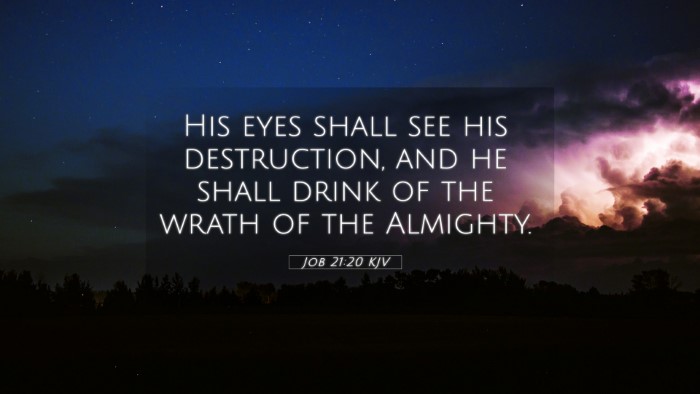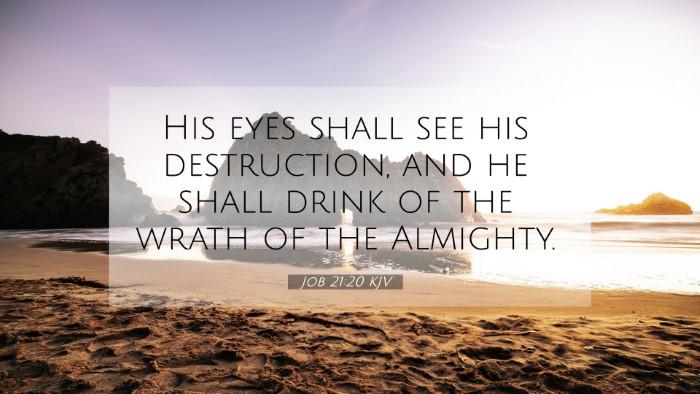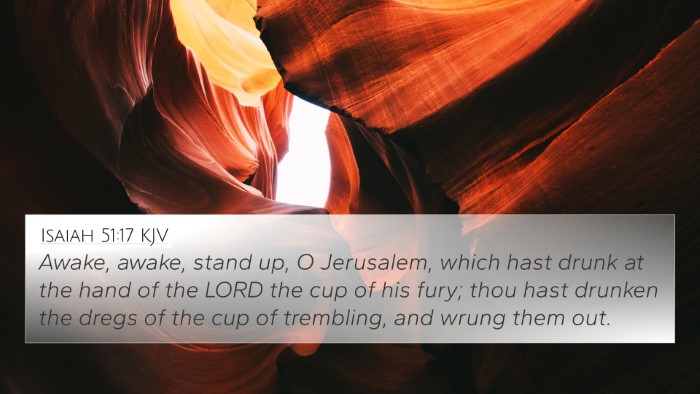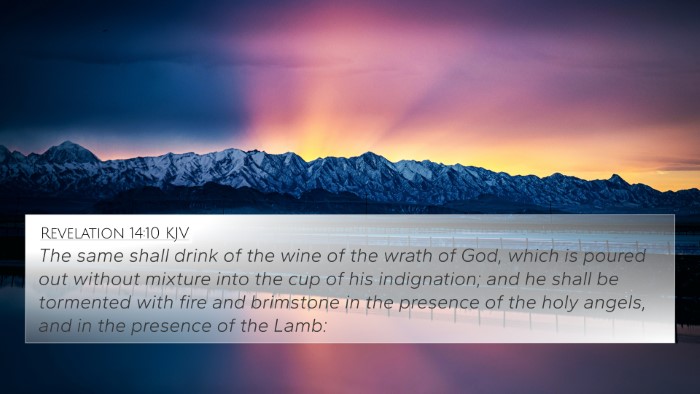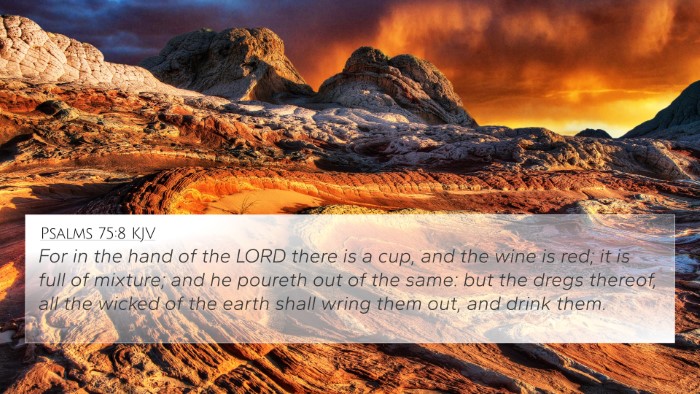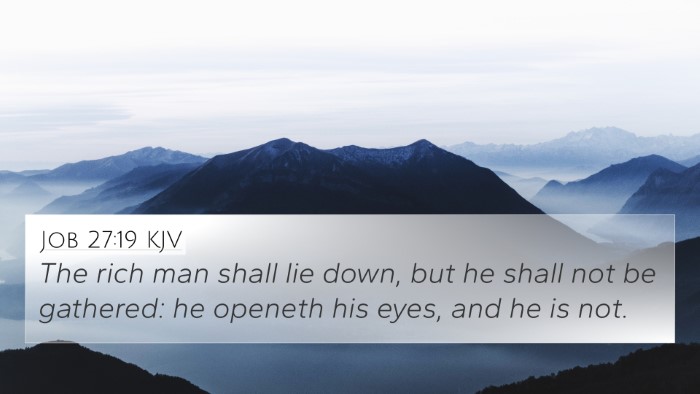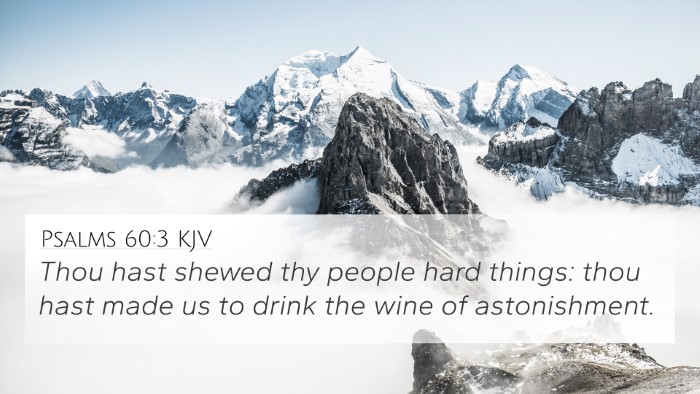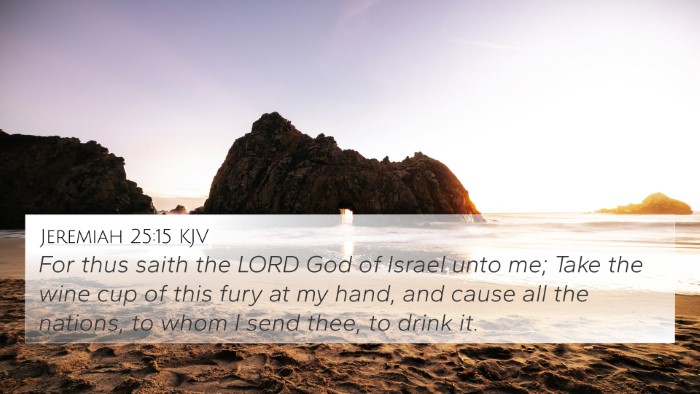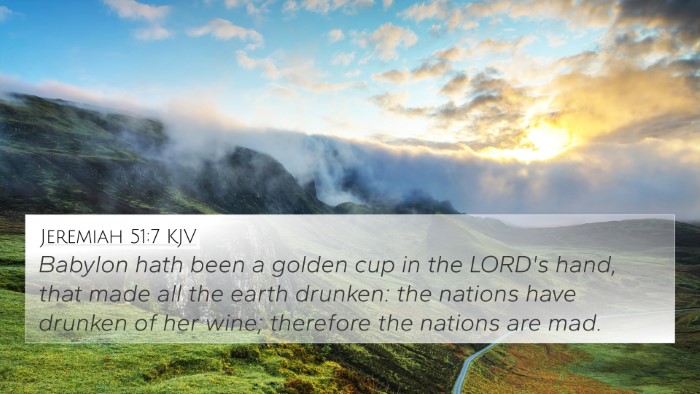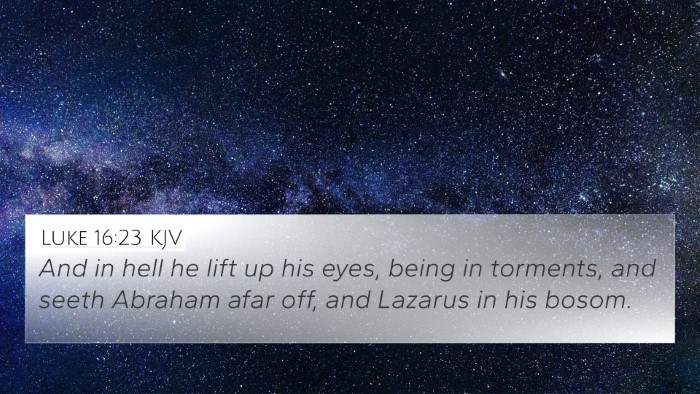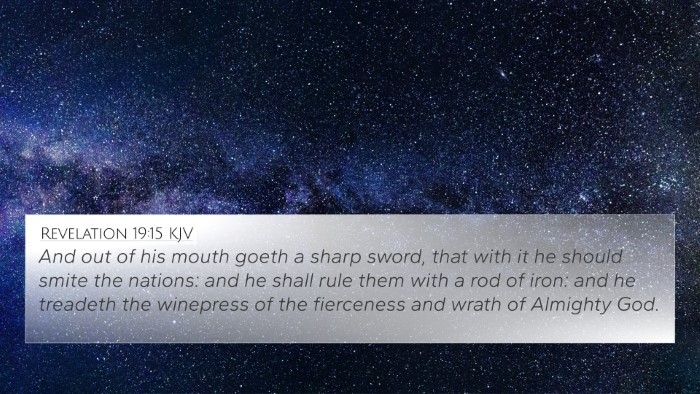Understanding Job 21:20 - A Comprehensive Analysis
Job 21:20 reads, "Let his own eyes see his destruction, and let him drink of the wrath of the Almighty." This verse highlights the theme of divine justice and retribution, emphasizing the consequences faced by those who oppose God. Below, we summarize insights from various public domain commentaries to provide a deeper understanding of this verse.
Contextual Background
The book of Job deals with profound themes of suffering and divine justice. Job himself, amidst his afflictions, contemplates the reality of the wicked prospering while the righteous suffer. Job 21 poses a challenge to conventional beliefs about justice, arguing that the wicked often enjoy long lives and abundant riches.
Commentary Insights
Matthew Henry's Commentary
Matthew Henry emphasizes that this verse illustrates the existential despair of the wicked when faced with the finality of divine judgment. He posits that the "wrath of the Almighty" provides a sobering reality for those who rebel against God. Henry notes that Job desires those who live in iniquity to realize the fullness of their eventual downfall.
Albert Barnes' Notes on the Bible
Albert Barnes comments on the rhetorical nature of this verse, noting that Job confronts his friends’ simplistic view of retribution. He argues that true justice is not always immediate, and Job challenges the notion that suffering is solely based on one’s sin. The phrase "drink of the wrath of the Almighty" signifies a total and overwhelming punishment, reinforcing the seriousness of divine consequences.
Adam Clarke's Commentary
Adam Clarke interprets the verse as Job's assertion that the ultimate fate of the wicked is to face God's wrath. He suggests that Job is both mourning his plight and emphasizing the need for everyone to recognize the reality of divine judgment that is often delayed but certain. Clarke touches on the emotional turmoil faced by both Job and the perceived prosperity of the wicked.
Key Themes in Job 21:20
- The reality of divine justice: Job argues against the simplistic view of retribution, advocating for a deeper understanding of God’s justice.
- The plight of the righteous: Job's suffering raises questions about the nature of righteousness and the seeming success of the wicked.
- The certainty of judgment: The verse emphasizes the assuredness of God's wrath against the wicked.
- Emotional despair: Job's lament highlights his internal struggle with understanding suffering and justice.
Cross References
This verse relates to numerous biblical passages that echo its themes:
- Psalms 73:18-19: “Surely you place them on slippery ground; you cast them down to ruin. How suddenly are they destroyed, completely swept away by terrors!”
- Proverbs 11:21: “Be assured, an evil person will not go unpunished, but the offspring of the righteous will be delivered.”
- Ecclesiastes 8:14: “There is something else meaningless that occurs on earth: the righteous who get what the wicked deserve, and the wicked who get what the righteous deserve.”
- Isaiah 57:21: “There is no peace, says my God, for the wicked.”
- Lamentations 3:36: “To deprive a man of his rights before the Most High, to deny him justice—would not the Lord see such things?”
- Romans 2:6-8: “God 'will repay each person according to what they have done.' To those who by persistence in doing good seek glory, honor, and immortality, he will give eternal life.”
- Revelation 20:12: “And I saw the dead, great and small, standing before the throne, and books were opened. Another book was opened, which is the book of life. The dead were judged according to what they had done as recorded in the books.”
- Galatians 6:7: “Do not be deceived: God cannot be mocked. A man reaps what he sows.”
- Job 10:3: “Does it please you to oppress me, to spurn the work of your hands, while you smile on the plans of the wicked?”
- Psalms 37:9: “For those who are evil will be destroyed, but those who hope in the Lord will inherit the land.”
Conclusion
Job 21:20 serves as a poignant reflection on justice and the complexities surrounding human suffering. By incorporating insights from esteemed commentaries and examining cross-references, we gain a profound understanding of Job's plight and the certainty of divine judgment against evil. This verse invites all believers to ponder the nature of God's justice and the experiences of the righteous while calling for a nuanced approach to interpreting Biblical texts.
If you wish to explore this verse further, consider utilizing Bible cross-reference guides or a Bible concordance to uncover additional connections. Understanding how different scriptures relate enhances not only our study but also our grasp of overarching Biblical themes.
